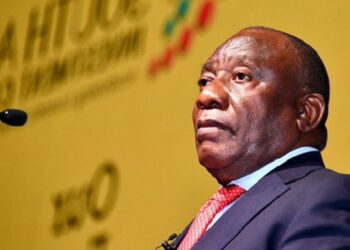By John Ikani
Nigerian crude grades, such as Bonny Light, Forcados, and Brass, renowned for their low sulfur content and favoured by refineries in Europe and Asia, are currently facing challenges in attracting buyers.
Traders, seeking cost-cutting measures, have shifted their preference to a blend of the light sweet US grade – WTI Midland and Brazilian grades.
According to a recent report by S&P Global Commodity Insights, the blend of WTI with Brazilian grades produce a cheaper Nigerian lookalike, which is undercutting the Nigerian crude grades in Europe and pushing down buying interest for Nigerian cargoes.
This shift in preference has led to a decline in the premium grade Bonny Light, which now stands at a 50 cents per barrel discount to Dated Brent as of 6 June.
“WAF (West Africa) is losing out to alternatives in Europe – WTI, Midland, and Brazilian grades have consistently undercut differentials, and sellers of Nigerian barrels struggle to find demand,” explained a source cited by the research house.
The lack of demand for Nigerian crude adds to the challenges faced by Nigeria, whose oil output dropped to a multi-decade low of below 1 million barrels a day last year.
The country has already been grappling with rampant incidents of oil theft in the south, which have significantly impacted government revenue, causing losses of up to $1 billion in the first quarter of this year.
With its current daily capacity at 2.2 million barrels, Nigeria’s production level remains less than half of its potential.
The situation is further exacerbated by the price ceiling placed on Russian crude following the conflict with Ukraine, which has made Urals crude a more attractive option for refiners in Asia, overshadowing African crude grades.
“I don’t think Nigeria can sustain competition with WTI Midland mixed with Brazil. It has been a while since Europe has been able to absorb Nigerian exports,” stated a source from S&P Global Commodity Insights, emphasizing the challenges faced by Nigerian producers in the current market.
These developments come as a setback to President Bola Tinubu’s plans to boost production and increase oil earnings.
President Tinubu had set ambitious targets to raise Nigeria’s daily output to 2.6 million barrels by 2027 and 4 million barrels by 2030.
However, April’s production, including condensate, saw a decline of 17.8 per cent to 1.25 million barrels per day.
“Nigerian producers will need to lower prices to remain competitive,” commented Uwadiae Osadiaye, a chartered financial analyst with Lagos-based FBNQuest, highlighting the necessity for Nigeria to adapt to the changing market dynamics.




































